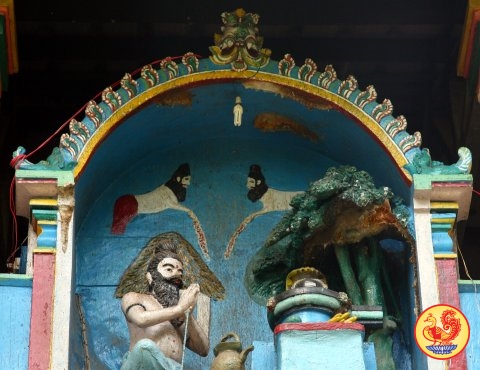Sage Rishyashringa
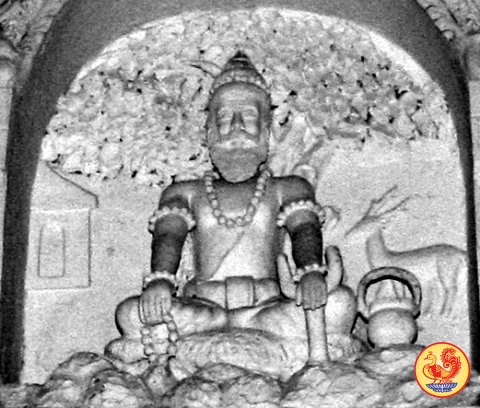
Sringeri is hallowed for all times by the ancient legend of the sage Sri Rishyasringa. Sage Vibhandaka, by a curious combination of circumstances, became the father of a child, with a horn in the forehead, born of a deer. He found himself responsible for the proper upbringing of the child, whom he named as Rishyasringa. He thought that the easiest way to keep his son innocent of the worldly ways was to keep him in forest isolation. He succeeded to such an extent that when the boy matured into manhood, he had never set eyes on any human being other than his own father. He was even unaware of sexual distinction.
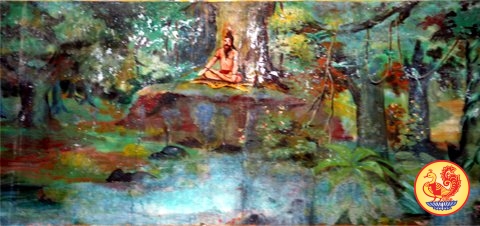
It so chanced that a neighbouring kingdom, which was then ruled by a king named Romapada, suffered from a severe drought. The king was advised by his ministers that there would be rains if sage Rishyasringa, blessed his kingdom with the touch of his holy feet. Romapada sent a number of fair damsels to the forest to bring the sage. They were however afraid of sage Vibhandaka, and so approached the hermitage when he was absent.
King Romapada, learning that the boy-sage had started from his hermitage, waited to receive him at the frontiers of his kingdom. The instant the holy sage stepped on the soil, the heavens opened up and poured-down life giving showers. The king, thankful for the favour conferred on him, showed his gratitude by offering the hand of his daughter, Santha, in marriage to the sage. Rishyasringa accepted her as his wife and remained in the king’s palace as an honoured guest for sometime.
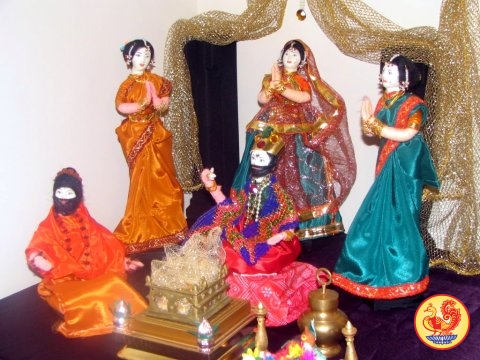
It was during this period that Dasaratha, King of Ayodhya, invited him to officiate in the yaga named Putrakameshti, by which he was blessed with four sons, Sri Rama and others. Sage Rishyasringa felt that his married life was not without its merits. It gave him an opportunity to usher into this world Sri Rama, the personification of Dharma.
The Linga
Yet he felt himself called back to his native forest with its holy atmosphere. He retired to the forest to spend the remainder of his life in divine contemplation. When he shuffled off his mortal coil, a lightning issued forth from his body and disappeared into the Linga he was worshipping as a symbol of formless Absolute.
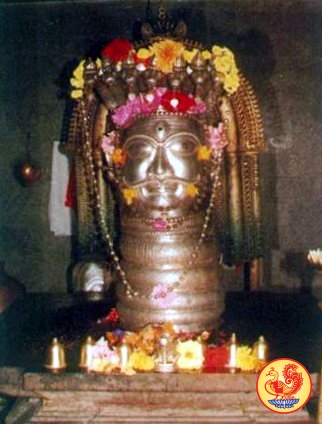
This Linga can be seen even now in the temple at Kigga, a village about 7 Km from Sringeri. Unlike others, this Linga is invested with a horn on its head, to commemorate the merger of the sage Rishyasringa.
The Linga that was worshipped by the sage Vibhandaka and into which he himself disappeared in the end is on the summit of a hillock. This is situated in the centre of Sringeri. The Linga is known as Malahanikareshwara (destroyer of the impurities of the Jiva) and is worshipped even today.
